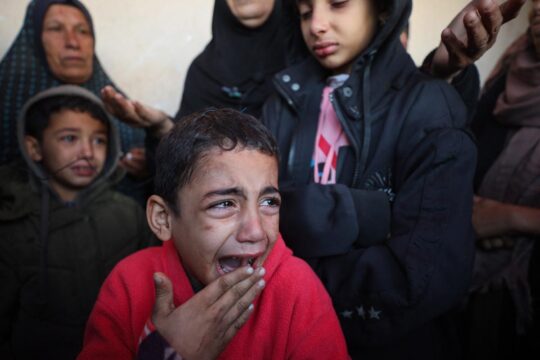Ivory Coast's President Alassane Ouattara said Saturday he has reached an agreement with soldiers who seized the second city Bouake in an pay protest that spread to the economic capital Abidjan.
The announcement came after tensions sharply escalated in the world's biggest cocoa producer, with shots ringing out at a military base in Abidjan as soldiers put up barricades in the city, a day after troops took over Bouake, firing rocket launchers in the streets and terrifying residents.
The soldiers are seeking bonuses, pay rises and faster promotion, in an angry protest that had spread to several other towns.
"I confirm my agreement to take into account the demands relating to bonuses and improving the living conditions of soldiers," Ouattara said in a brief declaration broadcast on television.
"Having given my agreement, I ask all soldiers to go back to their barracks to allow decisions to be carried out calmly," he added, without giving details of the deal reached after Defence Minister Alain Richard Donwahi met with a delegation of the mutineers in Boauke.
In Abidjan -- the bustling commercial hub that is home to the presidency, government and parliament -- troops had closed off a major junction near the Akouedo barracks in an upmarket northern neighbourhood, leaving the surrounding roads gridlocked with traffic and hampering access to several districts.
"The soldiers stopped at the roundabout in front of the barracks, demanding that drivers do u-turn. This created a panic," a local journalist told AFP.
"All the shops in the area are closed. The soldiers are wearing balaclavas."
National television had reported earlier that shots were heard at the barracks, while AFP journalists reported that soldiers had also put up barricades near a fire station in central Abidjan, where a dozen armed soldiers were forcing cars to turn back.
Elite troops from the presidential guard, heavily armed, were patrolling the deserted streets of the central Plateau business district that is home to the presidency.
- All-night shooting -
The rattle of automatic gunfire had raged in Bouake into Saturday morning, with sporadic shooting still heard by the afternoon, AFP journalists said.
"We heard shooting all through the night," one resident told AFP by phone. Schools and businesses remained shut.
The unrest erupted in Bouake in the early hours of Friday when troops broke into the city's main weapons depot, arming themselves with rocket-launchers and other weapons mounted on pickup trucks before attacking police posts, manning strategic junctions and putting up barricades.
Bouake was the headquarters of an armed rebellion that broke out in 2002 and split the west African country in two until 2011, sparking a decade of clashes and crises.
A military official, speaking on condition of anonymity, told AFP on Friday that the unrest was spearheaded by former rebel fighters now integrated into the army.
Soldiers also took to the streets of Daloa, Daoukro in the country's centre as well as Korhogo and Odienne in the north on Friday. Though the protests there eased, the unrest had spread to Man in the west as well as Abidjan by Saturday.
"Most garrisons in the country where there are ex-rebels have risen up, shooting in the air and looting in some places," a military source said, adding that better-equipped loyalist units, such as the special forces, had not joined the mutiny.
- 'Emerging from crisis' -
Defence Minister Donwahi had headed to Bouake on Saturday in an attempt to defuse the crisis, saying in a televised address before his departure that the situation was "understandable but regrettable".
"We are emerging from a crisis and our army is being rebuilt," the defence minister said.
"Things are not moving as quickly as we hoped but they are moving none the less."
A similar dispute over pay by rebels-turned-soldiers erupted in Bouake in November 2014 which spread to Abidjan and briefly brought the country to a standstill.
Bouake was the capital of a rebellion which erupted in 2002 in a failed attempt to oust then president Laurent Gbagbo.
The effective partitioning of the country between a rebel-held north and a loyalist south triggered years of unrest. Rebel forces generally backed Ouattara, the current president who took office in April 2011 after a bloody post-electoral showdown with Gbagbo that left 3,000 people dead.
Gbagbo was arrested and turned over to the International Criminal Court in The Hague, where his trial began in January last year for crimes against humanity.


